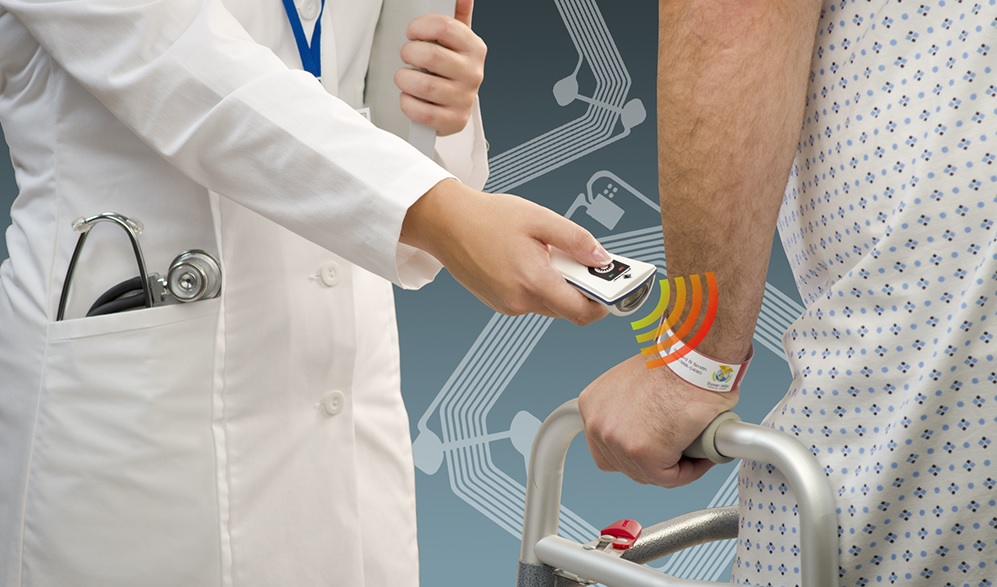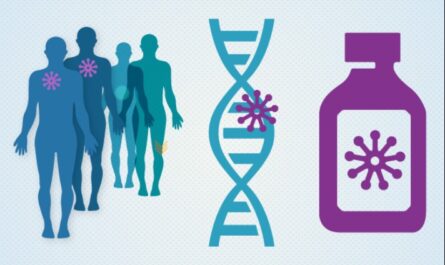Radio Frequency Identification (RFID) technology has been around for decades but is now being rapidly adopted across various industries including healthcare. With the ability to automatically identify and track tags attached to objects using radio waves, RFID is helping solve many challenges in the healthcare sector and improving patient outcomes.
Introduction of RFID
RFID uses small radio transponders called RFID tags or labels. These tags contain electronically stored information. An RFID reader equipped with antennas can read this information from the tag. RFID tags come in various shapes and sizes – some are printed directly onto product labels, some are embedded into product packaging, and others look like smart labels attached to objects.
RFID was introduced in the healthcare industry in the 2000s as a way to track medical equipment, manage hospital supplies and ensure patient safety. Early adopters saw value in using RFID to handle asset management problems like equipment theft or misplacement. Hospitals were losing millions each year just trying to find equipment on their floors. RFID provided an automated way to constantly monitor equipment whereabouts.
Tracking Medical Devices and Supplies
One of the primary uses of RFID in healthcare continues to be effective tracking of medical devices and supplies throughout their lifecycle within a hospital or medical facility. With RFID, expensive medical equipment worth thousands to millions can be easily located preventing loss and inventory waste.
RFID tags are attached to items like surgical tools, wheelchairs, hospital beds, infusion pumps etc. Readers installed at entry/exit points can capture tag info as items move in and out of areas. Any unauthorized removal of tagged items can be detected. Hospitals can precisely know real-time locations of high-value equipment and prevent loss. This has saved millions for healthcare systems over the years.
RFID is also useful for perpetual inventory of pharmaceuticals and medical supplies within stock rooms, pharmacies and operating rooms. Tags attached to boxes and packages allow automated tracking of consumption and reordering when inventory hits minimum levels. This streamlines supply chain operations reducing unnecessary stockouts or surplus stock holding costs.
Patient Identification and Safety
One of the most impactful uses of RFID in healthcare has been to address patient identification and ensure right treatment is given to the right person every time. Even a single mistake can have life threatening consequences. RFID helps minimize such risks.
Hospitals now issue RFID wristbands to all admitted and visiting patients. These wristbands contain unique identification codes that link to patients’ electronic records. RFID readers installed at points of care like pharmacy counter or lab collection verify patient identity before any medication/treatment by automatically pulling up attached records on scan.
This removes chances of human error in manually verifying patient details and prevents mismatched treatment. RFID improves patient safety by eliminating wrong-patient risks. Some healthcare providers have also started embedding RFID tags into implantable medical devices during surgeries to track implants throughout their usable life.
Clinical Workflow Automation
Many healthcare organizations are now leveraging RFID’s ability to automate workflows and processes in hospitals to improve clinical operations. RFID readers installed in critical areas capture tag info from patients, staff and devices hands-free without needing manual scanning.
For example, RFID triggers alerts for nurses when patients near call buttons or exit defined zones without assistance. It automatically updates electronic records when patients are transported between floors or undergo tests/treatments. RFID captures real-time staff locations and workload to optimize resource allocation. Automated tracking removes manual paperwork while improving visibility and coordination across care teams.
Privacy and Security Concerns
Despite widespread benefits, some privacy and security concerns surrounding RFID technology still exist in healthcare. Since RFID tags can be read remotely without contact there is a risk of unauthorized tracking. Hospitals need robust security policies and encryption standards to prevent cyberattacks and access to sensitive patient data by malicious actors.
Constant education is also required to make patients and staff aware of RFID usage and address concerns over possible monitoring without consent. Healthcare providers must respect patient privacy rights while leveraging location data for service improvements. Data governance models ensuring authorized usage and rigorous access control will boost adoption of RFID across hospitals.
Future of RFID in Healthcare
As the technology matures and privacy risks are mitigated, RFID is expected to become even more pervasive across the healthcare ecosystem. Its adoption will expand from hospitals to wearables, medical devices, telehealth programs and personalized at-home care.
Miniaturized RFID sensors can be embedded in pills and implantables to monitor medication intake and implant performance remotely.wearables will use RFID to automate updates to patient health records from home. Telehealth providers may employ RFID to authenticate remote patients and streamline care coordination. With more use cases, RFID promises to revolutionize how healthcare is delivered while keeping patients safe.
In summary, RFID technology holds tremendous potential to transform operations across the healthcare industry. By automating identification and tracking processes, RFID improves patient outcomes, enhances safety and boosts efficiencies. With advanced use cases on the horizon, RFID looks set to become an indispensable tool for next-gen healthcare.
*Note:
1. Source: Coherent Market Insights, Public sources, Desk research
2. We have leveraged AI tools to mine information and compile it



